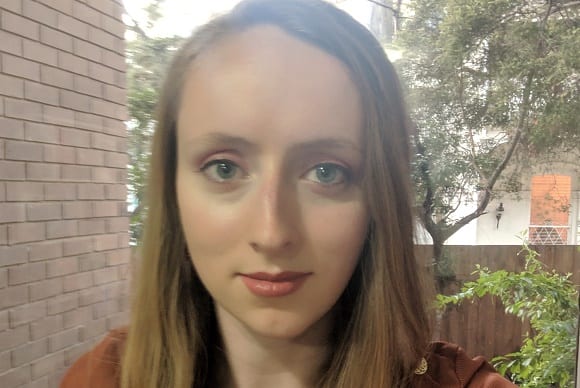
Megan Kent
Indigenous Health Scholarship
Monash University, VIC
Bachelor of Medicine
Scholarship Awarded 2019-2020
Sponsored by:
Boronia Medical Centre & Dr King Gan
How will I contribute to improving Indigenous health as a qualified medical practitioner or health worker?
I grew up in a country town just outside of Ballarat (VIC), physically distanced from my community in the Warungu tribe in Ceduna (SA), but accepted by my local Wathaurong tribe. Through my mother, uncle and grandmother, all nurses, I learnt the art of caring, and the importance of caring for someone’s body. Through my grandfather, I learnt the importance of caring for someone’s spirit.
My grandfather set up a health centre that incorporates cultural sensitivity in the care of patients. I then watched as he himself was treated in this facility, and the difference he displayed when transferred into the hospital he was fearful of as a child of the stolen generation. Seeing how culture is integral as a young child was vital, instilling me with a drive to use my culture as a health care professional, whether as a nurse like my mother, or as the first doctor from my community, as well as educating my peers and colleges to help make this common practice.
With this health sensitive background I want to use my career to help make people with Indigenous heritage feel safe in a hospital. I aspire to work either in Emergency, or Anaesthetics, both fields that require great communication skills to encourage a patient to trust in your best intentions as a doctor. I aspire to provide comfort and advocacy for patients as a fellow Koori person in the room, excluding a sense of bias that can be difficult to rule out from people outside of the community.
I have used my position within my workforce to help open discourses about the realities of being an Indigenous identifying person in modern Australia. In 2018 alone, as well as being a local AIDA representative at my university, I wrote international and domestic policies on cultural sensitivity, helped create a conference around Indigenous Healthcare realities, presented on a panel at a national conference, represented AIDA at a national organisation meeting, and campaigned to create funding to send students from my university to an international first nations conference. This is all advocacy work I intend to continue with in the future.
I aspire to have the courage to advocate for patients that may be being treated with unconscious bias because of their ATSI label. I have witnessed this affecting treatment choices, and to explaining chronic illnesses. I hope to help stop this in the future, and stand up to people who believe this behaviour to be the norm, rather than see it for the racism it is. By speaking on behalf of my patients and people to a medical team, I hope to raise awareness for others on the team that this is something required of them, and to question the status quo.
In conclusion, I wish to use my medical training to assist in the health care of all my patients, respecting the spiritual as well as physical health of my patients, and to assist my colleges in forming a comprehension of this requirement.
Current Progressive Report
As I’m sure everyone can comprehend, semester 1 2020 did not go as planned. I had a great 6 week rotation at the Epworth Hospital on their Neuro-Rehab ward, helping patients recover from traumatic brain injuries and limb amputations, which is a subject I am passionate about but not the training pathway I would ever have considered in order to pursue.
Then as Coronavirus was starting to affect Australia, I was commuting from my apartment in Hawthorn down to Warragul for my Emergency Medicine rotation. I loved this rotation while I was able to participate in it, but as social distancing and quarantines were coming front of mind, I was no longer able to travel such distances and so my placement was reallocated. This came as quite a shock to me, as I love emergency medicine as one of my 2 most likely career paths, but having my younger brother living with me at the time and depending on me to keep a safe home for him, I agree with my faculty’s decision.
From this transition I was welcomed into my first experience of a dedicated Oncology placement. I’ll be honest, oncology is definitely not for me. The diagnosis and surgical management are right up my ally, but the chemical treatment plans were extremely specific and confusing to me. Despite this, I had an amazing month and a half and was very welcomed into the team. I became a valuable member of the team due to my inherent narrative memory skills, which allowed me to assist a frequently changing team structure by recounting patient’s diagnosis, treatment and care pathways, as well as the values and goals that the patient had declared in previous team meetings. This is a skill that I have been told is common across a lot of Indigenous Health Care Workers, and I am very proud to have benefitted in my heritage in this way.
Unfortunately during this third rotation my brother found he was unable to continue the online learning he was required to do for his university to maintain social distancing, and so differed his year so he moved back in with our mum in Ballarat, so for now it is just me and my dog at home but we are making it work. I have also lost my ability to work part time outside my university placement, so I truly appreciate this assistance, even more so than I typically would.